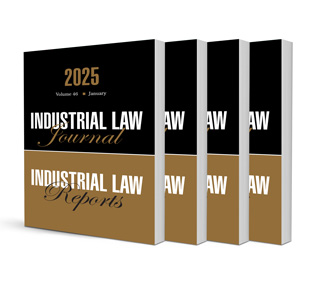
Analysis of the Effect of Artificial Intelligence on Employment Relationships in South Africa: Ethical Implications for Workers’ Rights, Privacy and Policy Frameworks
Authors Professor Franaaz Khan & Kirstin Hagglund
ISSN: 2413-9874
Affiliations: rofessor, Department of Private Law, University of Johannesburg; LLB, LLM, PhD (UKZN); LLD Candidate, Stellenbosch University; LLB, LLM (cum laude)
Source: Industrial Law Journal, Volume 46 Issue 1, 2025, p. 1 – 28
https://doi.org/10.47348/ILJ/v46/i1a1
Abstract
The sharp rise of artificial intelligence (AI) has dramatically changed the employer and employee relationship. The advantages are, for example, an increase in efficiency and improved decision making. However, it has also given rise to challenges relating to ethical and policy issues, primarily regarding privacy, bias, accountability, and job safety. AI systems rely on datasets. These datasets include sensitive personal information that can raise privacy concerns within a working environment. Another concern is bias in AI algorithms, which can unwittingly perpetuate discrimination. This may result in unfair outcomes in respect of hiring, performance assessments, and promotions that would solidify disparities in the workplace. In addition, the computerisation of tasks through AI poses threats to job security, as it could disrupt workers’ stability. These ethical concerns compel employers and policymakers to alleviate the negative consequences of AI. This article addresses the ethical implications of AI in the workplace, with a focus on South African labour law. It discusses current relevant legislation, such as the Labour Relations Act, to assess its efficacy in addressing AI-related issues as well as the new National Artificial Intelligence Framework Policy 2024. A comparative analysis of AI legislation in the European Union and United States is also included in which best practices are identified. The article suggests a balanced regulatory approach that supports innovation while providing clear guidelines to protect employee rights and maintain fairness.